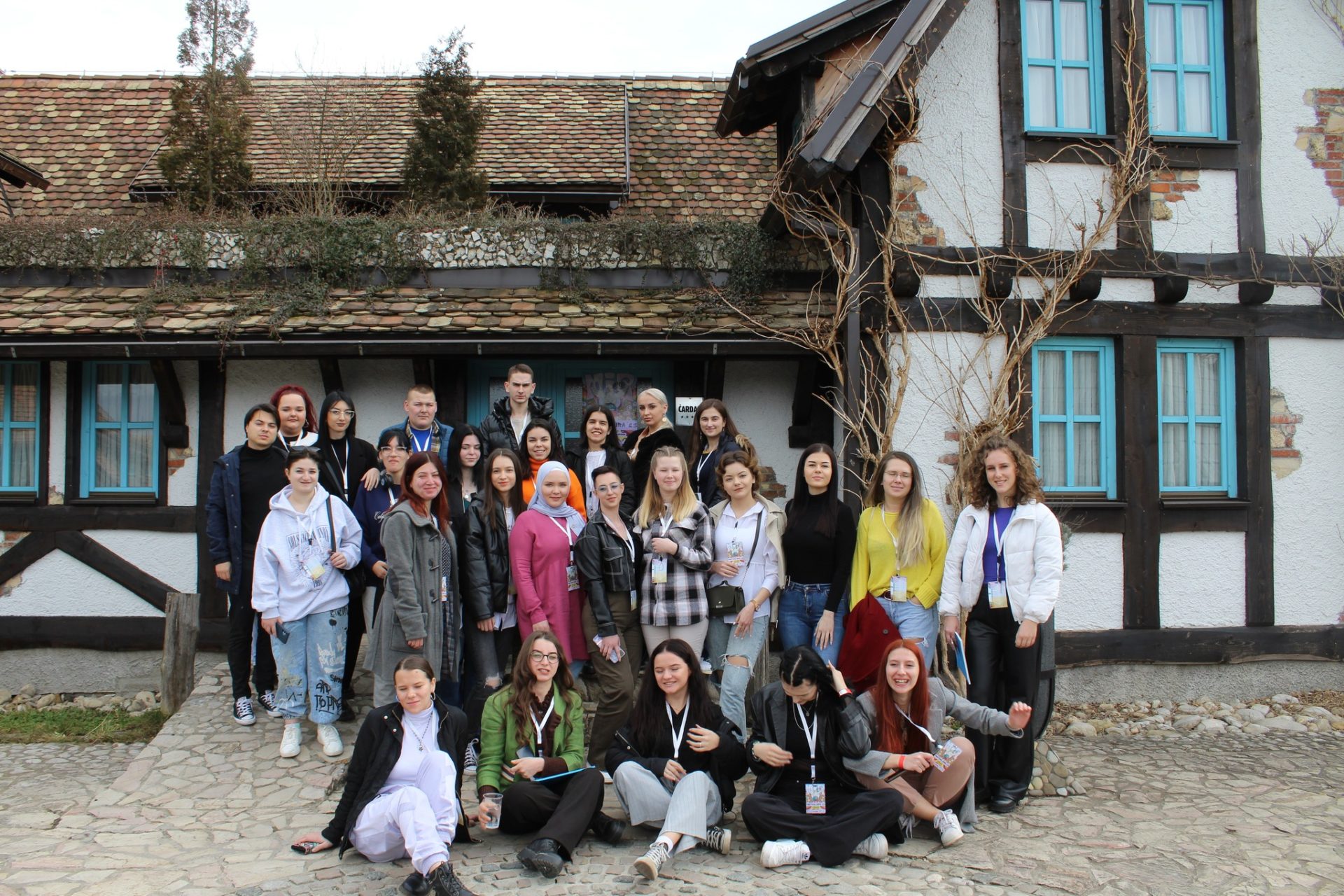
More than 40 young people from 20 cities of Bosnia and Herzegovina attended the opening of the second edition of the Peace Festival in the Čardaci Ethno Village in Vitez, organized by the Post-Conflict Research Center (PCRC).
The four-day Festival officially began with the screening of Aida Gavrić’s documentary film “Colorless,” which focuses on the ‘non-aligned’ members of Bosnian society – those who do not belong to any of the country’s constitutive ethnic groups, and were born from a time of the love between different peoples.
“The most challenging thing for me was including children in the documentary because of the stigma that these children are bastards,” said Gavrić, adding that the inspiration for the film came from her own family, because she is also a child of a mixed marriage.
Robert Dacešin was awarded the Ordinary Heroes Award for his video promoting Bosnia and Herzegovina as a tourist destination. Dacešin expressed his satisfaction, stressing that he will continue to promote the natural beauty of Bosnia and Herzegovina and that he hopes to become the first Bosnian and Herzegovinian to travel around the world.
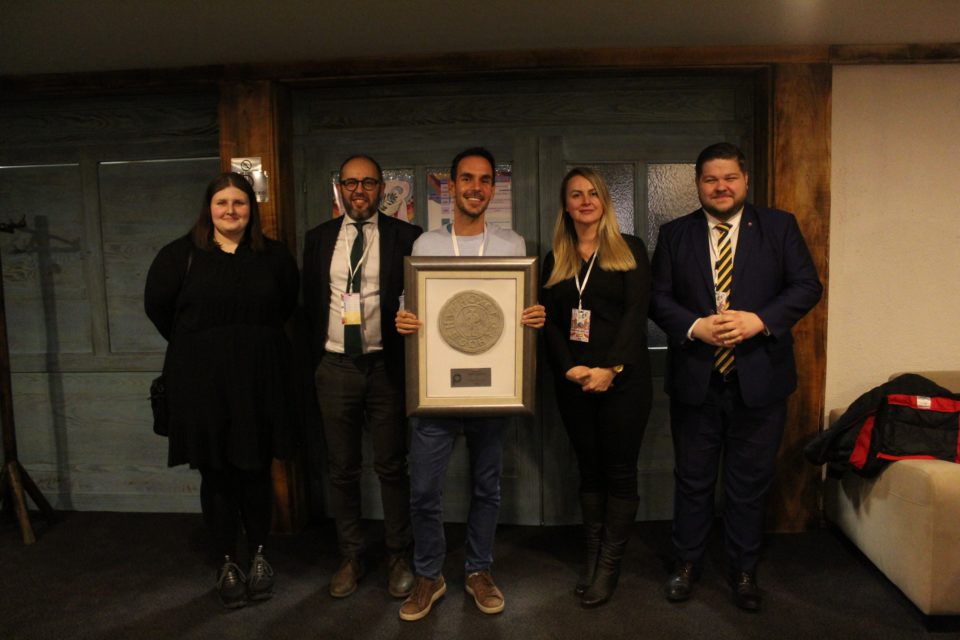
Velma Šarić, founder and president of PCRC, said that for more than ten years, the Center has been working to promote peace so that young people and future generations will never have to experience the horrors of conflict.
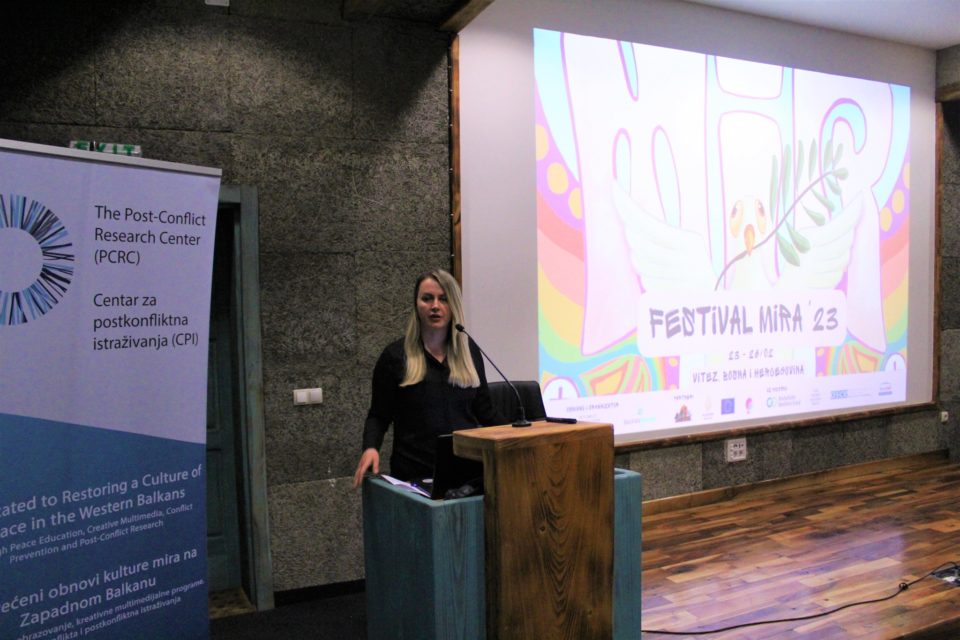
“We’ve created a lot of multimedia content. Each project basically deals with and promotes peace. I won’t say it’s about reconciliation among young people because you weren’t responsible for the past conflict, so you don’t need to reconcile here,” said Šarić. She pointed out that Peace Festival ‘23 is part of the Peace Museum umbrella project, which aims to promote peace, tolerance, and inter-ethnic dialogue through various programs and activities, thereby enabling young people to socialize, talk, and come to certain kinds of conclusions on their own.
Patrik Turosik, Deputy Ambassador at the Slovak Embassy in Bosnia and Herzegovina, who is supporting the Peace Festival for the second year in a row, said that last year, he saw many young people with a lot of ideas and optimism, and that he sees the same at this Festival.
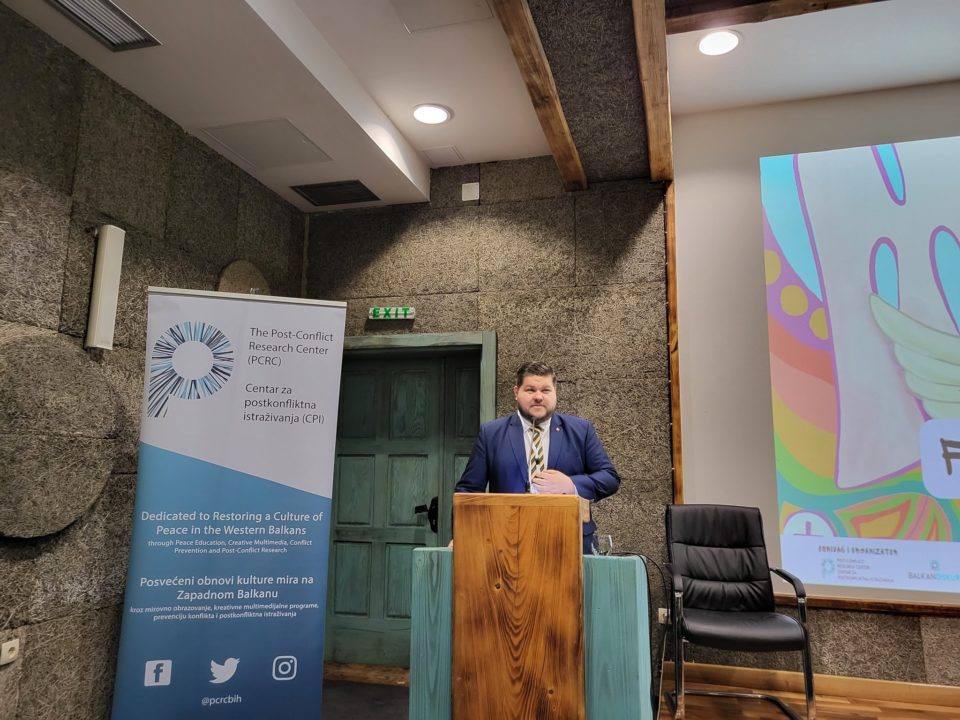
“A year ago, we may not have thought about peace as we do now. I come from Slovakia, from a town on the border with Ukraine, and my family lives there. I also live with the fear of what is happening there. Refugees often pass through my town, and what we see is that these people may be broken and exhausted, but they are also ready to continue their future and to fight for it,” said Turosik, encouraging Festival participants to be brave, even when the going gets tough.
Will Richard, from the OSCE Mission to Bosnia and Herzegovina, said that he was pleased to be able to attend the opening of the Festival, and that young people have a significant role to play in challenging negative rhetoric.
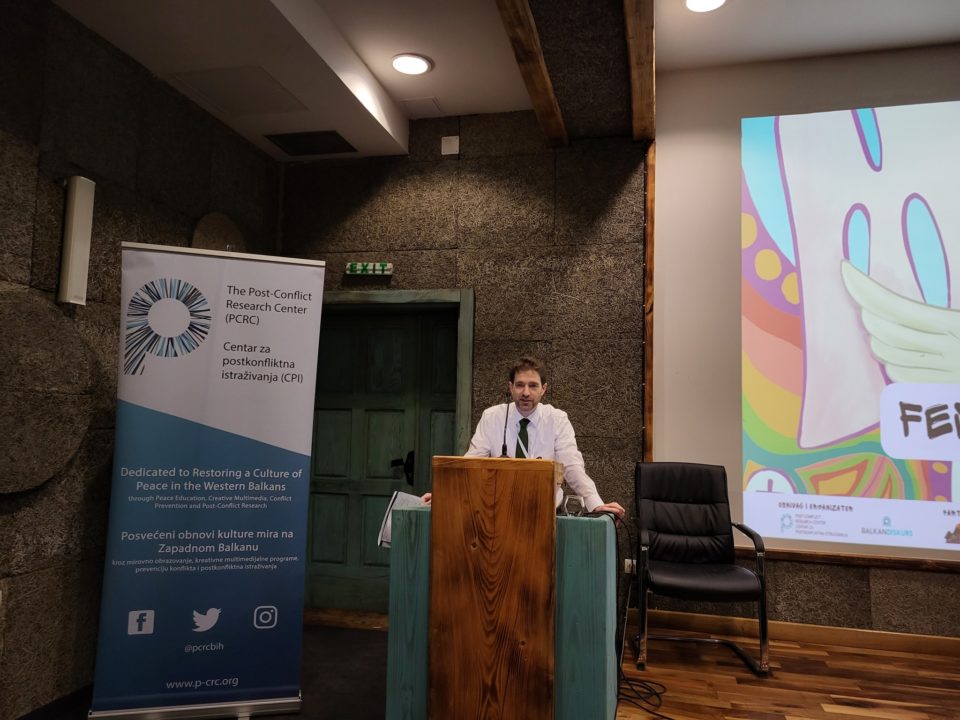
“You young people were treated unfairly in terms of the structural changes in which you grew up, but it’s encouraging that many of you have overcome these ideas,” said Richard.
He reiterated that despite setback and incendiary rhetoric at the higher levels, at the local level, things are much better than people think. “The number of incidents resulting from prejudice is relatively small, and violent crimes committed out of hatred are extremely rare. This shows that people in Bosnia and Herzegovina want to separate themselves from the dark past and the legacy of the war and to live together, but this should not be taken for granted. I’m proud that events like this draw the attention of many young individuals and organizations that promote social connection,” said Richard.
Fermin Cordoba, senior political adviser to the European Union in Bosnia and Herzegovina, emphasized that inter-ethnic dialogue and trust is very important not only declaratively, but also in terms of European integration. He explained to the participants of the Festival the 14 European priorities that Bosnia and Herzegovina must fulfill on the way to EU membership, stressing that priority five is reconciliation.
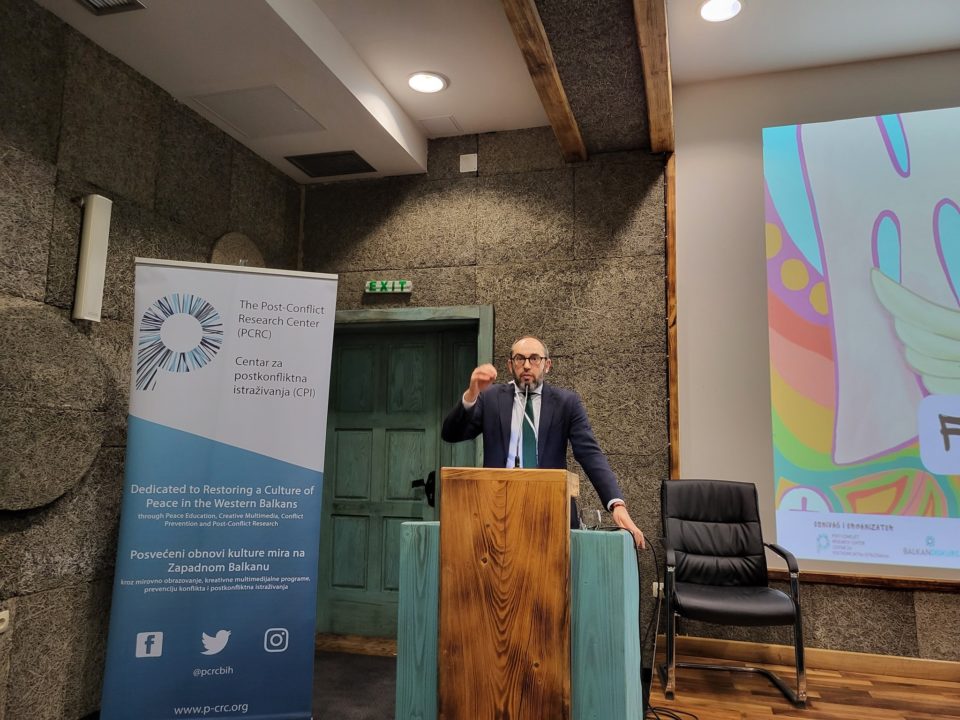
The Festival is supported by the Slovak Agency for International Development Cooperation (Slovak Aid), the Sigrid Rausing Trust, the Rockefeller Brother Foundation, and the OSCE Mission to Bosnia and Herzegovina. The Festival is held in partnership with the Čardaci Ethno Village, Al Jazeera Balkans, the Vitez Youth Theater, and the Delegation of the European Union to Bosnia and Herzegovina.





